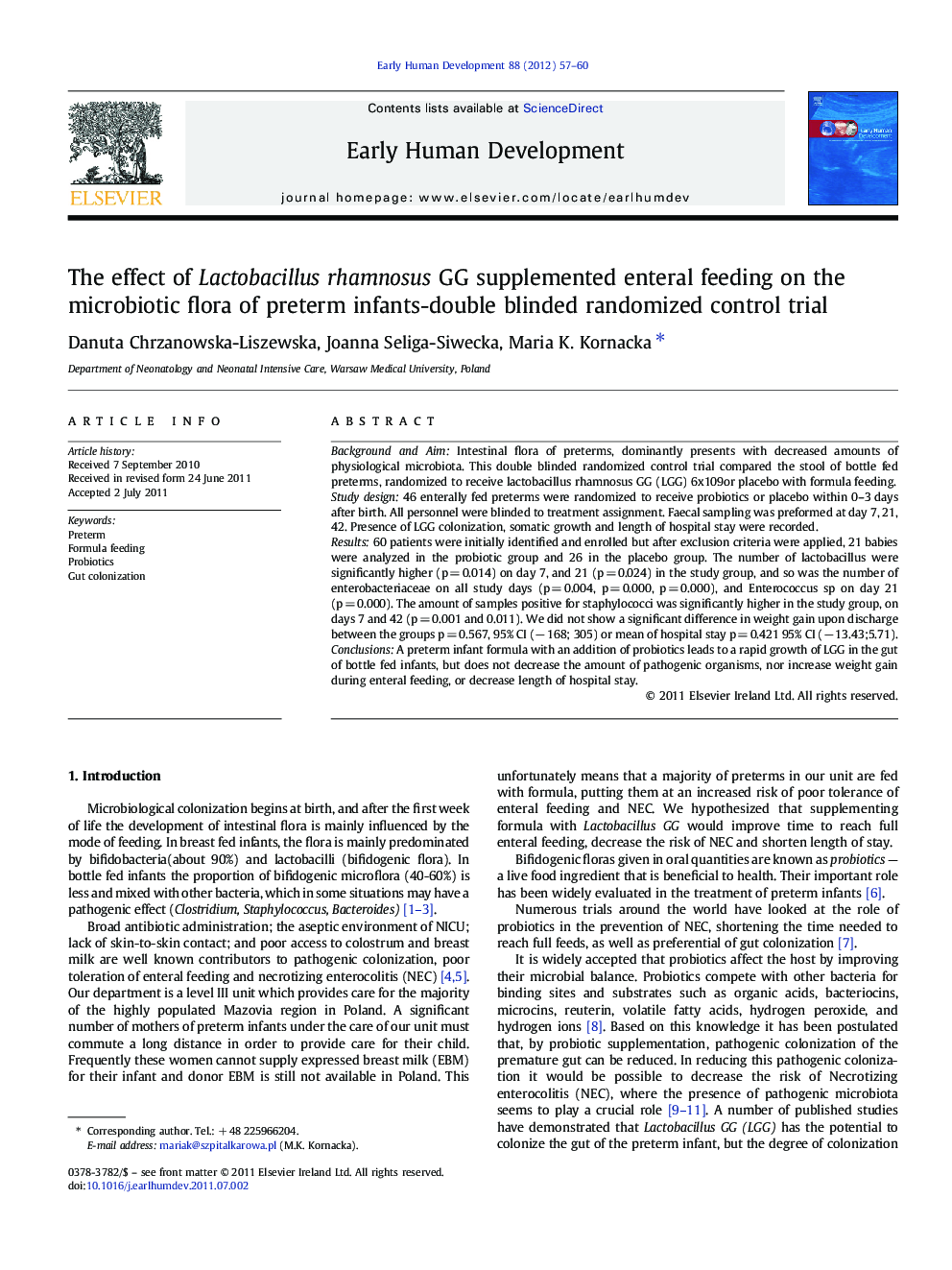| Article ID | Journal | Published Year | Pages | File Type |
|---|---|---|---|---|
| 6172102 | Early Human Development | 2012 | 4 Pages |
Background and AimIntestinal flora of preterms, dominantly presents with decreased amounts of physiological microbiota. This double blinded randomized control trial compared the stool of bottle fed preterms, randomized to receive lactobacillus rhamnosus GG (LGG) 6x109or placebo with formula feeding.Study design46 enterally fed preterms were randomized to receive probiotics or placebo within 0-3 days after birth. All personnel were blinded to treatment assignment. Faecal sampling was preformed at day 7, 21, 42. Presence of LGG colonization, somatic growth and length of hospital stay were recorded.Results60 patients were initially identified and enrolled but after exclusion criteria were applied, 21 babies were analyzed in the probiotic group and 26 in the placebo group. The number of lactobacillus were significantly higher (p = 0.014) on day 7, and 21 (p = 0.024) in the study group, and so was the number of enterobacteriaceae on all study days (p = 0.004, p = 0.000, p = 0.000), and Enterococcus sp on day 21 (p = 0.000). The amount of samples positive for staphylococci was significantly higher in the study group, on days 7 and 42 (p = 0.001 and 0.011). We did not show a significant difference in weight gain upon discharge between the groups p = 0.567, 95% CI (â 168; 305) or mean of hospital stay p = 0.421 95% CI (â 13.43;5.71).ConclusionsA preterm infant formula with an addition of probiotics leads to a rapid growth of LGG in the gut of bottle fed infants, but does not decrease the amount of pathogenic organisms, nor increase weight gain during enteral feeding, or decrease length of hospital stay.
